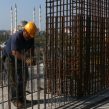
Moscow’s Economic Sanctions Against Turkey Will Have Negative Impact on North Caucasus
Publication: Eurasia Daily Monitor Volume: 12 Issue: 218
By:

Moscow’s reaction to the downing of a Russian military jet over Turkey has been unusually harsh. In his address to the Russian parliament on December 3, President Vladimir Putin continued his diatribe against Turkey’s leadership. “If anybody thinks that after having committed a cowardly military crime—killing our people—they will get off lightly with [a ban on imports of] tomatoes or some restrictions in the construction and other industries, they are deeply mistaken.” Putin enumerated all the benefits that Turkey supposedly received from Russia and regretfully announced: “Only Allah alone knows why they did that [downed the Russian military jet]. And, perhaps, Allah decided to punish the ruling clique of Turkey by depriving it of its mind and reason” (Kremlin.ru, December 3).
Russian began cutting economic and other ties to Turkey even before Vladimir Putin announced them. For example, the Russian customs service started to check Turkish imports into Russia particularly fervently. Putin’s decree in particular targeted Turkish imports, exports and the Turkish tourism industry, which for years has benefited from a sustained inflow of Russian tourists (Gazeta.ru, November 28). Imposing sanctions on Turkey, however, has a negative impact on Russia itself. The government even delayed the sanctions to avoid a spike in inflation. Russia has spent $750 million on imported Turkish fruits and vegetables alone so far this year (The New York Times, November 30).
Even more significantly, cutting economic ties with Turkey will likely affect the Russian government’s nascent efforts to jumpstart its ambitious import substitution program. After the West imposed economic sanctions on Russia following the annexation of Crimea by Russia and the Russian government’s apparent involvement in eastern Ukraine, Putin called for a program of import substitution. Russian officials said that the sanctions would help Russia to develop its own industries in the absence of competing foreign products. Russian businesses, however, soon realized that even with import substitution they still needed foreign-made machinery and supplies. As one of the countries that did not support the economic sanctions against Russia, Turkey was seen among the suppliers for the Russian import substitution program. Those plans, however, appear likely to be subjected to a significant revision now.
Among the poorest peripheral regions of the Russian Federation, the North Caucasus also happens to be the closest to Turkey geographically. Therefore, this region had extensive plans to benefit from cooperation with Turkey. But those plans are now clearly in jeopardy. In the period between January and September of this year, the North Caucasian Federal District exported produce worth $61.7 million to Turkey. Turkey is the third-largest export destination for businesses in the North Caucasian Federal District. The majority of exports to Turkey from the North Caucasus come from the Stavropol region, which supplied various products from its chemical industrial plants located in the city of Nevinnomyssk and Bydyonnovsk. North Ossetia supplied products worth about $12 million to Turkey in the same period of the year. The North Caucasian Federal District imported Turkish produce worth about $82 million in the same period of time. Machinery used in the energy sector comprised about half of the imports from Turkey. These modest figures, however, do not reflect the entire scope of Turkish involvement in the North Caucasus. Turkish companies took part in various large infrastructure projects, such as the airport in Ingushetia and large construction projects in Chechnya. Moreover, Turkish companies had plans for the expansion in Dagestan, North Ossetia and Kabardino-Balkaria. The economic proposals of the Turkish companies were in line with the Russian government’s hopes to substitute imports with locally produced goods (Kavkazskaya Politika, December 2).
Besides economic interests, the ties between the North Caucasus and Turkey are also quite strong at the individual level. Turkey has the largest Circassian diaspora in the world. Other North Caucasians—Chechens, Dagestanis and Ossetians—also have maintained close ties to Turkey due to the large diasporas in the country. Moreover, the North Caucasus is home to several large Turkic-speaking groups, including the Balkars, Karachays and Kumyks, among others. But the expansion of cultural ties across borders is now in jeopardy, and this has caused muted criticism in the North Caucasus (Kommersant, December 4).
Practically all of the republics of the North Caucasus had air links to Turkey. Turkish airline companies were also expanding their activities across Russia, since Turkey and Russia shared a bilateral agreement to drop visa requirements, which made travel in both directions easy and cheap (Kavkazskaya Politika, November 27).
In the wake of the downing of the Russian warplane, Moscow has announced the reintroduction of visa requirements for Turkish citizens, and Turkey might follow suit as well. The statistics also do not capture the large semi-legal trade in Turkish textiles across the North Caucasus, with small-time local traders shuttling between Istanbul markets and North Caucasian cities. Thus, thousands of businesses and livelihoods in the North Caucasus are under threat now. Although it is still formally possible to travel to Turkey from the North Caucasus, Russian tourist companies have been urged to exclude Turkish resorts from their holiday packages, and charter flights from Russia to Turkey have been banned (Lenta.ru, November 30).
The Russian government says it is punishing Turkey with economic sanctions, but some Russian experts say that with Russia itself under Western sanctions, the move is harmful to Russia above all. The North Caucasus is arguably the one Russian region that will be most affected by the Kremlin’s sanctions against Turkey. Since Moscow’s ability to finance the region is declining, the Russian sanctions against Turkey are derailing the efforts of North Caucasians to make up for the losses caused by Western sanctions against Russia by developing cooperation with Turkey.




